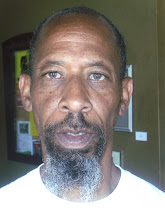During the research for this book, I have found the term “invisible” used not only in the wide array of literature on poverty and homelessness, but also on other subjects pertaining to African Americans such as Invisible Politics: Black Political Behavior by Hanes Walton, Jr. (1985) E185.615 W32 Social Work practice with African American Men: The Invisible Presence by Janice M. Rasheed and Mikal N. Rasheed HV3181 R37, Invisible Punishment: The Collateral Consequences of Mass Imprisonment by Marc Mauer and Meda Chesney-Lind, editors (2002), the “Invisible Church” referring to the early stages of the Black Church prior to it becoming more online as an established institutional form. Invisible Men: Life in Baseball’s Negro Leagues by Rogosin, Donn (1995) about the segregated Negro baseball league, and Race and the Invisible hand: How White Networks Exclude Black Men from Blue-Collar Jobs by Deirdre A. Royster. These tittles are illustrative of the plight of Black men in the United States albeit the world.
It is no coincidence that the above referenced books on the invisibility of Black men in those areas of politics, social work practices, sports, employment, religion and crime. There is a lack of real political power or at the very minimal a lack of exercise of political will on the part of the African American population. W.E.B. Dubois called this apathy a lack of “Energy.” The social work practices that are in place have never served the white-poor sufficiently, so of course it has not been effective in alleviating homelessness and poverty of the black-poor. In actuality, these institutions were never designed to assist people in developing any real stake in the body politic, but rather, to perpetuate the status quo, European domination and control in all human endeavors and presenting the world as “finished European product.”
In his book Invisible Men: Faces of Alienation (1973) George Victor discusses, from his psychoanalytical position the salient issue with regard to invisibility. He uses the term invisible men to connotate the psychological concept of alienation, and traces this issue of alienation to family structure, community ritual, and cultural patterns. The outcomes of the alienation are defiance, recklessness, and violence. Alienation according to The Gale Encyclopedia of Psychology (2001) is “the state of being emotionally separated from others and from ones own feelings.” Diop says that, “This climate of alienation finally deeply affected the personality of the Negro, especially the educated black who had had an opportunity to become conscious of world opinion about him and his people. It often happens that the Negro intellectual losses confidence in his own possibilities and in those of his race to such an extent that, despite the validity of of the evidence presented in this book, it will not be astonishing if some of us are still unable to believe that Blacks really played the earliest civilizing role in the world.” He goes on to say that, “Freguently Blacks of high intellectual attainments remain so victimized by this alienation that they seek in all good faith to codify those Nazi ideas in an alleged duality of the sensitive, emotional Negro, creator of art, and the White Man, especially endowed with rationality.”
It further suggests that “alienation is a powerful feeling of isolation and loneliness, and stems front a variety of causes. Alienation may occur in response to certain events or situations in society or in one’s personal life. “Some sociologists observe that individuals become alienated when they perceive government, employment, or educational institutions as cold and impersonal, unresponsive to those who need their services. Entire groups may experience alienation – for example, ethnic minorities or residents of inner city neighborhoods who feel the opportunities and advantages of mainstream society are beyond their reach. Feeling separated from society is not the only way a person experiences alienation: sometimes the individual feels alienation as disharmony with his or her true self. This condition develops when a person accepts societal expectations, that are counter to the persons true goals, feelings, or desires. He may appear to be successful in the role others expect him to assume, but his true wish is hidden, leaving him feeling deeply conflicted and alone. The description of Alienation by Borgatta and Borgatta in the encyclopedia of sociology states that it is sometimes refers to the isolation of individuals from a community – a detachment from the activities, identifications, and the ties to relatives and friends that a community can provide. In contrast, scholars influenced by the philosophical writings of Karl Marx have used the word to mean self-estrangement and lack of self-realization (Braverman, 1974).
“The concept of alienation has included the notion of cultural radicalism, or estrangement from the established values of a society. Ingelhart (1981) has argued that the highly educated generation that came of age in the counterculture of the 1960’s has rejected the elders’ traditional values of materialism, order, and discipline and instead espouses “postmaterialist” values emphasizing the quality of life, self-realization, and participatory democracy.” Borgatta and Borgatta in the Encyclopedia of sociology
Alienation is expressed differently by different people. Some become withdrawn and lethargic; others may react with hostility and violence; still others may become disoriented, rejecting traditional values and behaviors by adopting an outlandish appearance and erratic behavior patterns. As society undergoes rapid changes, and traditional values and behavioral standards ae challenged, some people find little they can believe in and so have difficulty constructing a reality in which they can find a place for themselves. It is for this reason that social and cultural beliefs play such an important role in bringing about or averting a feeling of alienation The Gale Encyclopedia of Psychology (2001).
Williams, David A. (2009) Unpublished Manuscript
